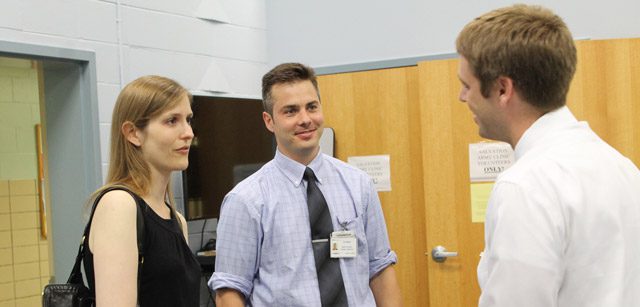By Robert E. Thomson, Commissioner –
If my observations are accurate—and I believe they are—an authentic revolution is taking place in The Salvation Army in the United States. It’s a movement that is pushing the organization back to its very beginnings.
This retrogression is not in the area of music. The hymnody of the Army has changed dramatically over the past quarter century. While the words of Fanny Crosby and Richard Slater and Albert Orsborn are still sung often and with deep feeling by Salvationist congregations, they’ve been largely replaced by the lyrics of John Peterson and John Gowans and Bill Gaither.
Likewise, the melodies of folk songs and love ballads, which the Army borrowed in years gone by, still have their place. Now the “praise and worship” genre, with accompaniment by guitars and drums, is making inroads. But the new words and new music are not driving us back to our origins.
Neither is this revolution defined by the style of worship found in our Army halls or, using the new idiom, in our churches or worship centers. The typical Salvation Army meeting of today is much less spontaneous than those conducted by early-day leaders.
A hundred years ago a printed “order of service” would have been unthinkable, any semblance of “liturgy” scorned. But this change in meeting content, real though it is, is not the revolution of which I speak.
A return to the conducting of open-air meetings, so popular and so useful in our grandparents’ day, just is not happening. While increasingly we make use of modern media to proclaim the gospel message, a return to the streets just is not occurring.
What I do see happening that is reflective of yesterday’s Army is a resurgence of personal evangelism and mentoring of new Christians. Nowhere is this more dramatically demonstrated than in our Salvation Army adult rehabilitation centers (ARCs).
More and more I see young men and women, marvelously freed from drug and alcohol addictions through faith in Jesus Christ, sharing their success stories with others still struggling with their demons. More and more I witness friends leading friends to the Savior and then offering genuine support in the critical days and months and even years of spiritual formation.
This is a revolution that is taking us back to the beginning days of the Army.
William Booth said: “We are a salvation people—this is our specialty—getting saved and keeping saved, and then getting somebody else saved.”
There’s little merit in yearning for the music or the worship style or the meeting schedule of yesteryear. But a reclaiming of zeal for personal evangelism and Christian mentoring will lead us back to a glorious future for The Salvation Army.
I thank God for this revolution in progress and pray that it will not only continue but grow, making the Army of 2016 reflective of the Army of 1916 and of 1896.













